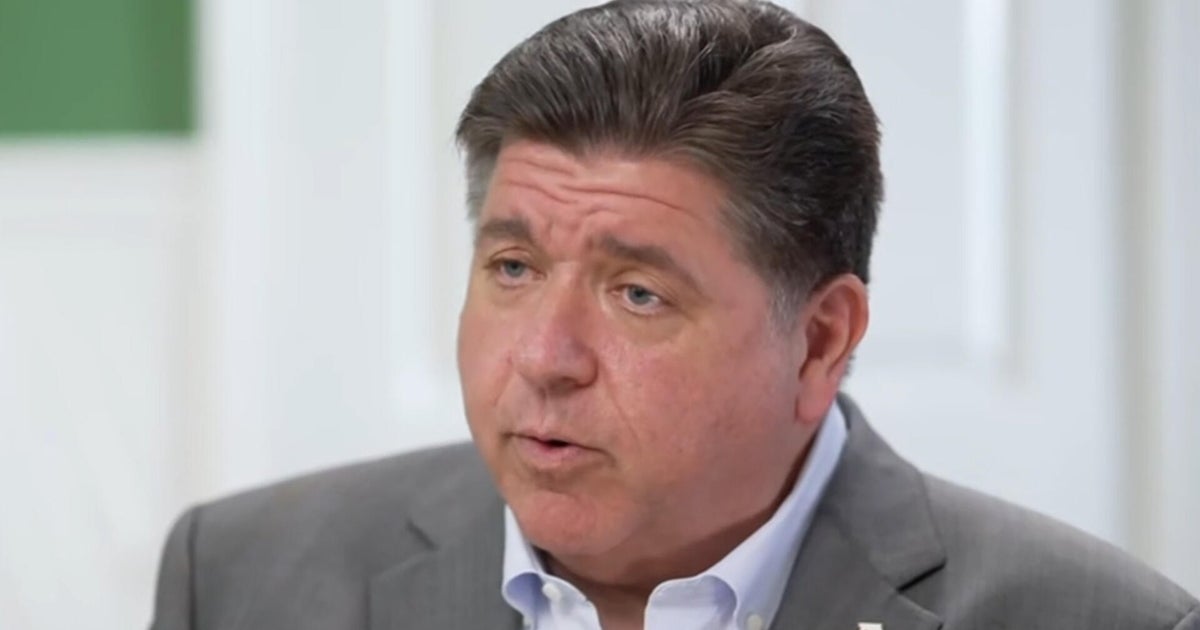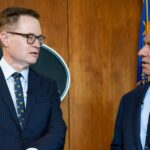In a recent development that has stirred considerable controversy and concern among political leaders, Illinois Governor JB Pritzker addressed issues relating to the Trump administration’s plans regarding the deployment of military forces to Chicago. In an interview with CBS News, Governor Pritzker highlighted that there had been no official communication from the Trump administration about the reported strategies to mobilize military personnel in response to the city’s crime situations.
The idea of deploying military forces such as the National Guard to Chicago was first brought to public attention by The Washington Post. These reports suggest that President Donald Trump intends to address the city’s escalating crime rate by potentially introducing thousands of National Guard members to assist in maintaining law and order. However, the actualization of these plans remains unconfirmed as the specifics and the official announcement from the Pentag begin to take tangible shape.
Governor Pritzker expressed significant reservations about the proposed military intervention. He explicitly described the plans as an ‘invasion of U.S. troops,’ if carried through, indicating a deep-set belief that such actions would overstep normal operations aimed at curbing crime, hinting at ulterior motives behind the deployment. “It’s clear that, in secret, they’re planning this – well, it’s an invasion with U.S. troops, if they, in fact, do that,” Pritzker relayed to CBS News, portraying a scenario that he views as both severe and unwarranted.
This controversial stance is not isolated. In previous months, President Trump has already executed similar strategies in other major cities like Los Angeles and Washington, D.C. These initiatives have largely been framed as efforts to tackle problems ranging from illegal immigration to civil unrest. However, their outcomes have sparked a multitude of reactions, with many local leaders arguing that such actions exacerbate tensions and undermine local governance.
The dialogue around the national deployment further heated when President Trump pointedly criticized Chicago’s handling of crime under Mayor Brandon Johnson and suggested that federal intervention could be necessary. He asserted that such steps would aim to ‘straighten out’ issues and restore order, stigmatizing the city as a ‘mess’ during his discourses.
Responding to the notion that military deployment in Chicago might commence as soon as the next week, as paralleled with recent operations in Los Angeles, Governor Pritzker warned voters to recognize the broader implications of such actions, hinting at potential political motivations behind such decisions. He speculated about the administration’s long-term goals, expressing concerns over impacts on future elections and control over electoral processes, “…may be part of a plan to stop the elections in 2026 or, frankly, take control of those elections.”
The Governor vehemently characterized any such military intervention as an ‘attack on the American people,’ urging reflection on the appropriateness of deploying troops against U.S. citizens based on political leanings or state voting records. His strong stance highlights fundamental questions about federalism, state rights, and the proper role of military forces in civil enforcement actions.
The Trump administration, through White House spokeswoman Abigail Jackson, defended their stance, attributing the proposed actions to the necessity of addressing rampant criminal activities which they believe local authorities have failed to manage effectively. Jackson sharply criticized Governor Pritzker, framing him as negligent towards his duties and accusing him of playing political heroics at the cost of public safety.
These intense exchanges underline the polarized perspectives regarding the role of federal intervention in managing city-level crime issues, the preservation of civil liberties, and the integrity of state governance. The dialogue is not just about policy but touches deep constitutional and ethical lines about the distribution of power in the United States.
Emerging legal challenges and ongoing judicial reviews related to similar deployments in other states like California indicate the complex and contentious nature of this issue. These challenges argue both the legality and the appropriateness of using military personnel for law enforcement purposes, a debate that is likely to continue escalating as these scenarios unfold.
Governor Pritzker’s stark warnings about potential overreach by the federal government and President Trump’s firm insistence on taking direct action illustrate a profound and troubling clash of ideologies and governance strategies. As plans for the possible deployment progress, all eyes will be on Chicago and how this high-stakes confrontation between state and federal leadership will evolve, reflecting broader national tensions over governance, authority, and public safety.
For more details and updates on this evolving story, CBS News plans to feature a more extensive interview with Governor JB Pritzker on “Face the Nation.” This interview is expected to delve deeper into the governor’s perspectives and outline the state’s responses to the federal government’s strategies.
The ongoing developments in Chicago will undoubtedly continue to be a significant point of national focus, raising critical questions about the balance between ensuring security and preserving democratic norms in America.









